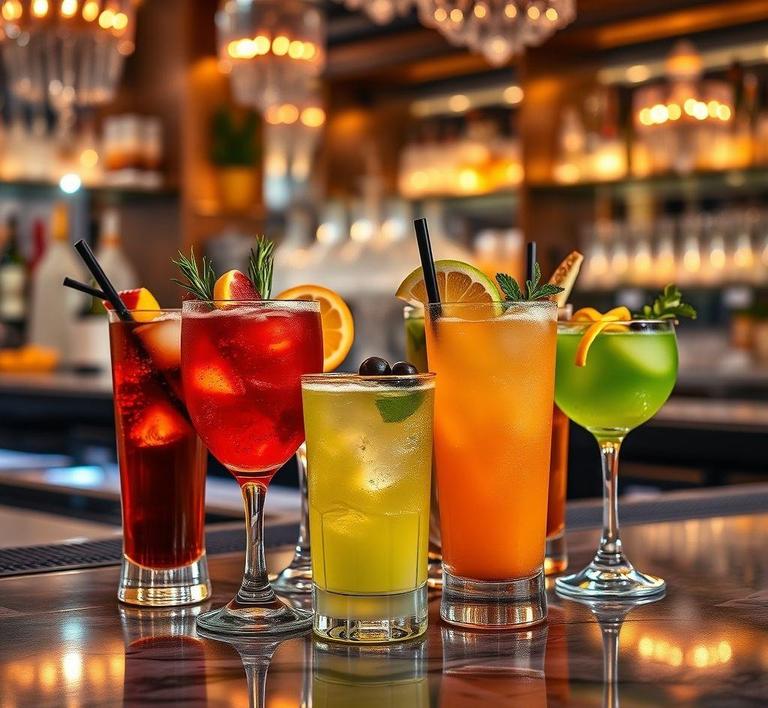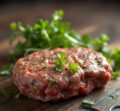Refreeze cocktails are the perfect fusion of refreshing frozen treats and your favorite alcoholic beverages, ideal for those warm days when you want to cool off and sip something a little more exciting. Think of them as a fun, boozy twist on classic frozen desserts, blending ice cream, sorbets, or slushies with spirits like rum, tequila, or vodka. Whether you’re hosting a backyard party or just want to experiment in the kitchen, this guide will walk you through everything you need to know to make these icy delights – from flavor combinations to tips on the best ingredients and techniques for achieving that perfect slushy texture. Get ready to chill and sip!
Can You Refreeze Cocktails?

Refreezing cocktails is a question that has intrigued many cocktail lovers and home bartenders alike. It’s a natural thought to have, especially when preparing drinks in large quantities for a party, event, or simply because you’ve made too much and don’t want to waste it. But before you dive into that freezer, it’s essential to understand what happens when you freeze, thaw, and then refreeze a cocktail.
At the core of the matter is the fact that cocktails often contain water (either in the form of ice, diluted mixers, or melted ice) and alcohol. Water freezes into solid ice, while alcohol has a much lower freezing point, so it remains liquid even in freezing temperatures. This difference in freezing points is important because it affects the texture, flavor, and consistency of your drink. Refreezing a cocktail, especially one that has already been thawed and undergone temperature fluctuations, can lead to undesirable changes, such as separation of ingredients, dilution, and loss of texture.
In a general sense, cocktails with a high alcohol content (above 20% ABV) are less likely to experience drastic texture changes when refrozen. However, cocktails with lower alcohol content (like mixed drinks that include fruit juices, soda, or syrups) are more vulnerable to the negative effects of refreezing. So, while technically possible, refreezing cocktails isn’t always the best idea, especially if you’re looking to preserve the drink’s quality.
How To Refreeze Cocktails?
If you’ve made the decision to refreeze your cocktail-perhaps because you’re saving some leftovers from a large batch or want to prep drinks ahead of time-there are a few key steps to follow to minimize quality loss.
- Choose the Right Cocktail: As mentioned earlier, cocktails with a higher alcohol content tend to hold up better when refrozen. These include drinks like martinis, Manhattans, margaritas, or cocktails made with stronger liquors like vodka, rum, or gin. Cocktails that are lower in alcohol or contain a lot of juice or syrup might undergo undesirable changes like separation or excessive dilution.
- Strain and Separate: If the cocktail contains ice or has been served over ice, it’s important to remove that ice before freezing. The reason is that the ice will melt during thawing and then refreeze, altering the overall texture and taste of the drink. You can also strain out any garnishes (like fruit slices or herbs) that may not freeze well and can impact flavor and texture once thawed.
- Use an Airtight Container: Air exposure can cause oxidation, which will degrade the quality of your cocktail. Choose a container with a tight-fitting lid or use a resealable freezer bag. This will help preserve the flavor and prevent any freezer burn, which could result in off-flavors or freezer odors mixing into the drink.
- Portion Control: If you’re freezing a large batch of cocktails, consider freezing them in smaller portions (e.g., ice cube trays or individual drink-sized containers). This allows you to thaw only as much as you need, ensuring that you’re not repeatedly thawing and refreezing, which would only contribute to quality degradation.
- Thawing Properly: When you’re ready to enjoy your refrozen cocktail, let it thaw slowly in the refrigerator overnight or place it in a cool area for several hours. Quick thawing in a microwave or under hot water could result in undesirable textural changes or uneven thawing. If the cocktail is a shaken one, you can shake it once thawed to help recombine any ingredients that may have separated during freezing.
- Re-shaking or Stirring: Once your cocktail has thawed, give it a good shake (or stir, depending on the original recipe) to reincorporate any separated components. This will help improve the mouthfeel and consistency of the drink, making it taste as close to fresh as possible.
Quality Impact
Refreezing cocktails can significantly impact their quality, and the results often depend on the ingredients and the method used. Here are some key aspects to consider:
- Texture: The biggest concern when freezing and refreezing cocktails is the texture. Many cocktails rely on a smooth mouthfeel, which can be compromised if the ingredients separate or become grainy. Ingredients like fruit juices or syrups may split or become watery when frozen, making the drink taste diluted and less balanced. The freezing process can cause the ingredients to change in a way that makes them less harmonious when thawed.
- Flavor: Refreezing can alter the delicate balance of flavors. While freezing alcohol doesn’t change its core taste (due to its low freezing point), other elements like citrus, fruit juices, or bitters can undergo changes when frozen and thawed repeatedly. Over time, the freezing process can cause these flavors to degrade, resulting in a less vibrant, less fresh taste. Additionally, the ice crystals formed during freezing could dilute the drink when it thaws, weakening the flavor.
- Separation: Some ingredients are more prone to separating when frozen and thawed, especially creamy elements like milk, cream, or egg whites in cocktails such as a Ramos Gin Fizz or White Russian. The freezing process may cause emulsified ingredients to break down, resulting in an unappealing texture and a separated appearance when the drink is thawed.
- Aesthetic Appeal: If you’re preparing a cocktail for an event or to impress guests, refreezing may not be the best option. A refrozen drink can appear cloudy, lose its original vibrancy, and even change its color in some cases. The visual appeal of your drink might suffer, particularly in clear cocktails or those made with fresh ingredients that lose their crispness.
- Alcohol-Free and Low-Alcohol Cocktails: These are often the most affected by freezing. Because they don’t have the same protection from the freezing process as higher-alcohol cocktails, these drinks may become watery and lose much of their original flavor and texture. Cocktails like mojitos, daiquiris, or any mixed drink made with fruit juices or syrups tend to suffer the most when refrozen.
While it’s certainly possible to refreeze cocktails, doing so may come with a loss of quality, particularly in terms of flavor, texture, and overall aesthetic. Cocktails with a higher alcohol content tend to fare better, but even they can lose some of their original charm. The biggest risk lies with lower-alcohol or mixed drinks, which may separate, become diluted, or change in flavor after freezing and thawing.
If you plan to refreeze a cocktail, taking careful steps to preserve its quality-such as removing ice before freezing, using airtight containers, and thawing properly-can help mitigate some of the negative effects. But if you’re looking for the perfect cocktail experience, fresh is always best. Refreezing might be convenient for leftovers or large batch preparations, but if you want to enjoy your cocktail at its finest, it’s better to enjoy it when it’s freshly made.
Is It Safe To Refreeze Cocktails?
When it comes to cocktails, refreezing is a concept that can raise more than a few eyebrows. For many, cocktails are about balance-whether it’s the perfect blend of alcohol, mixers, and ice or the delightful flavor combinations. The idea of refreezing these concoctions might seem counterintuitive, but there’s a lot more to it than meets the eye.
Freezing and refreezing cocktails is possible, but it depends on several factors. The main concern is that freezing and refreezing can compromise the texture, flavor, and even the safety of the drink. The first key issue lies in the alcohol content. Alcohol freezes at a much lower temperature than water, typically around -114°F (-81°C) depending on the ABV (alcohol by volume). This means that most cocktails won’t freeze solid unless they have a very low alcohol content or are watered down heavily. However, once thawed, the re-freezing process can cause a variety of undesirable effects.
Refreezing cocktails that contain dairy products or fresh ingredients, for example, is generally a bad idea. The texture of dairy-based cocktails (like a creamy White Russian or a Piña Colada) can become grainy or curdled after refreezing due to the separation of milk proteins and water. Furthermore, fresh fruits or juices can degrade in flavor or become mushy upon refreezing, as the freezing process breaks down their cellular structure.
So, is it safe? Yes, but with certain caveats. If your cocktail contains only alcohol, syrup, and ice, and you’re okay with possible changes in texture, refreezing can work without significant harm. On the other hand, if you’ve added fresh ingredients like juices or dairy, you’ll want to approach the process with caution, understanding that you may lose some flavor quality and aesthetic appeal.
Signs That Cocktails Should Not Be Refrozen
There are several clear indicators that a cocktail should not be refrozen. Refreezing might seem convenient or tempting, but certain signs can help you determine whether it’s a bad idea:
- Separation of Ingredients: If the cocktail has started to separate, particularly when it comes to layered drinks or those with emulsions (like egg whites or dairy), this is a red flag. When thawed, these cocktails may not return to their original form. Dairy-based cocktails, for example, often curdle, while cocktails with citrus or fruit juices may become watery or broken.
- Altered Texture: If your cocktail has started to take on an undesirable texture-such as being overly watery or grainy-this is another sign that refreezing may not be a good option. Cocktails with high water content (like those containing soda, juice, or simple syrup) are prone to textural issues when frozen and thawed multiple times.
- Cloudiness: Some cocktails, especially those with cream, citrus, or other fresh elements, may become cloudy or lose their clarity once thawed. This cloudiness can indicate that the ingredients have separated or degraded in quality. If this happens before the drink is refrozen, the second freeze might intensify the effect, turning your cocktail into an unappetizing mess.
- Diminished Aroma: If the aroma of your cocktail changes after the first freeze or if it loses its fresh fragrance, it’s a sign that the delicate compounds responsible for its scent have been altered. Freezing can reduce the potency of certain flavors, so when you try to refreeze and re-thaw, the aroma may not be as vibrant.
- Excessive Crystallization: Some cocktails, particularly ones with high sugar content, will form large ice crystals once frozen. If these crystals don’t melt uniformly after thawing, they can alter the texture of the drink, making it unpleasant to drink. If you notice large, uneven ice crystals, refreezing might exacerbate the problem.
Common Refreezing Mistakes
Refreezing cocktails sounds like a clever way to preserve drinks, but certain mistakes can make the process far more complicated and detrimental to the quality of the drink. Here are some common pitfalls people fall into when attempting to refreeze cocktails:
- Not Straining the Cocktail Before Freezing: When freezing a cocktail, it’s important to strain out any solids (like fruit pulp, mint leaves, or cocktail garnishes) before freezing. These can degrade in quality during the freezing and thawing process, potentially affecting both texture and flavor. Failing to strain your cocktails can lead to an unpleasant muddled consistency after thawing.
- Freezing in the Wrong Containers: Containers that are too small or too large can make freezing and refreezing difficult. Small containers can cause a cocktail to freeze unevenly, while larger containers might make it hard for the drink to freeze uniformly. Ideally, freeze cocktails in a shallow pan or tray that allows for even freezing and faster thawing. Plastic containers with airtight lids are great options for storage.
- Not Allowing the Cocktail to Cool First: A common mistake is freezing a cocktail before it has had time to cool down to the right temperature. If you freeze a warm or room-temperature cocktail, it may freeze unevenly, which affects both texture and flavor. Always ensure the cocktail is properly chilled in the fridge before attempting to freeze it.
- Freezing Mixed Drinks With Too Much Ice: Cocktails made with a lot of ice, or those that are already watered down, should be carefully considered before freezing. The water from melted ice may lead to a diluted, tasteless cocktail once thawed. Ideally, freeze cocktails that are mixed and well-balanced without excess ice, or simply freeze the liquid part of the cocktail and add fresh ice later.
- Refreezing Too Often: Refreezing any item too many times can lead to a loss in quality. Every time a cocktail is thawed and refrozen, its consistency, flavor, and texture will degrade further. Ideally, you should only freeze and thaw once. If you plan to store leftover cocktails, consider refrigerating them instead of refreezing to avoid the compounding negative effects.
Tips And Tricks For Refreezing Cocktails
Refreezing cocktails doesn’t have to be a disaster, but there are some tricks you can use to maximize quality and minimize damage:
- Use Silicone Molds for Perfect Portions: When freezing cocktails, it’s best to portion them into smaller sizes. Silicone ice cube trays or molds are ideal for this, as they allow you to easily pop out individual servings of your cocktail. This is especially useful if you want to refreeze a cocktail for a party or just for personal use in the future.
- Freeze Cocktail Components Separately: If you have a complex cocktail that contains multiple ingredients, consider freezing the components separately. For example, freeze the alcohol base and mixers in separate containers. This way, you can combine them once thawed and maintain a better flavor profile.
- Avoid Freezing Garnishes: If your cocktail contains garnishes like fresh herbs, citrus slices, or cherries, it’s best to remove them before freezing. Garnishes will often lose their texture and become mushy once frozen. Consider adding fresh garnishes after the cocktail has been thawed and served.
- Add a Little Extra Alcohol: Alcohol can act as a preservative, and adding just a bit more than usual can help maintain the drink’s integrity during freezing. Alcohol prevents the mixture from freezing solid, which can help with the consistency after thawing. However, be careful not to add too much, or it could alter the flavor.
- Label Your Freezing Date: To keep track of how long your cocktails have been frozen, always label your containers with the date you froze them. This way, you can ensure that you consume them within a reasonable time frame (usually no longer than 1-2 weeks).
Conclusion
Refreezing cocktails is a practical but nuanced endeavor. While it is possible to refreeze cocktails, the process requires careful consideration of the ingredients, textures, and potential impact on flavor. The more delicate the cocktail (such as those containing dairy or fresh fruit), the more likely it is to lose quality during the freezing and thawing process. By paying attention to signs of degradation-such as separation, altered texture, and diminished aroma-you can avoid common mistakes and preserve your cocktails as best as possible.
When it comes to refreezing, it’s all about balance. With the right techniques, like freezing components separately or using silicone molds, you can maintain a good level of quality. However, always keep in mind that frozen cocktails are best enjoyed fresh, and repeated freezing should be avoided if you want to preserve the original taste and texture. Whether you’re preparing for a party or simply storing leftovers, it’s crucial to freeze only what you intend to drink soon after and never freeze cocktails too many times.


